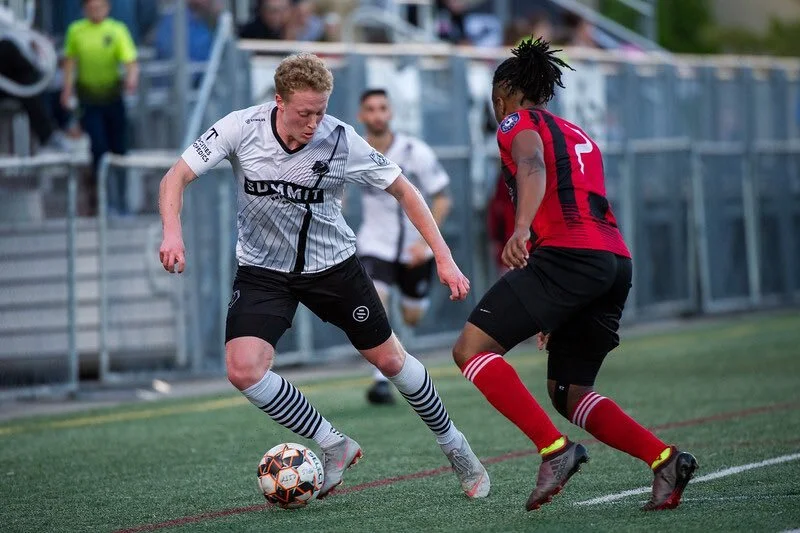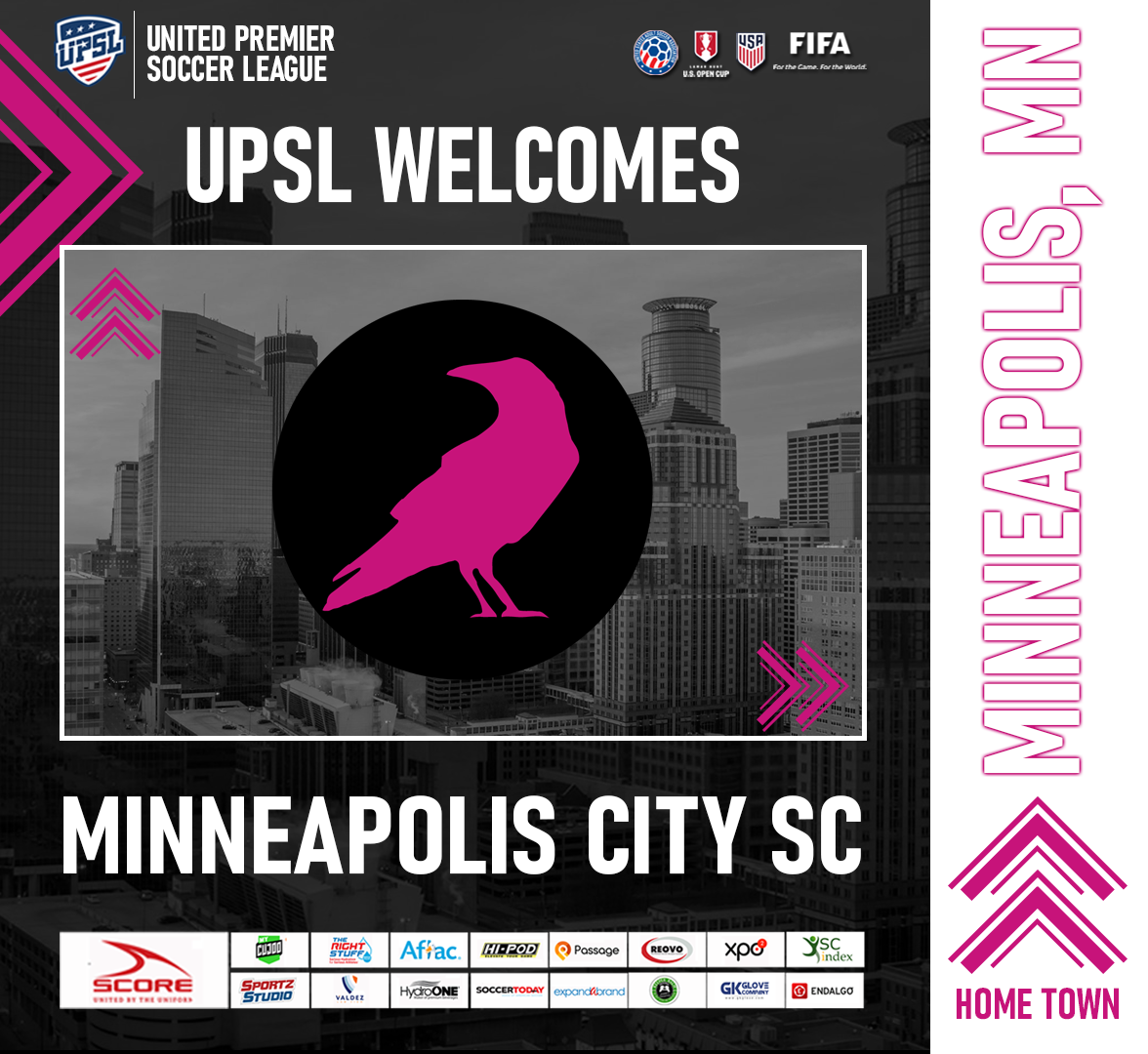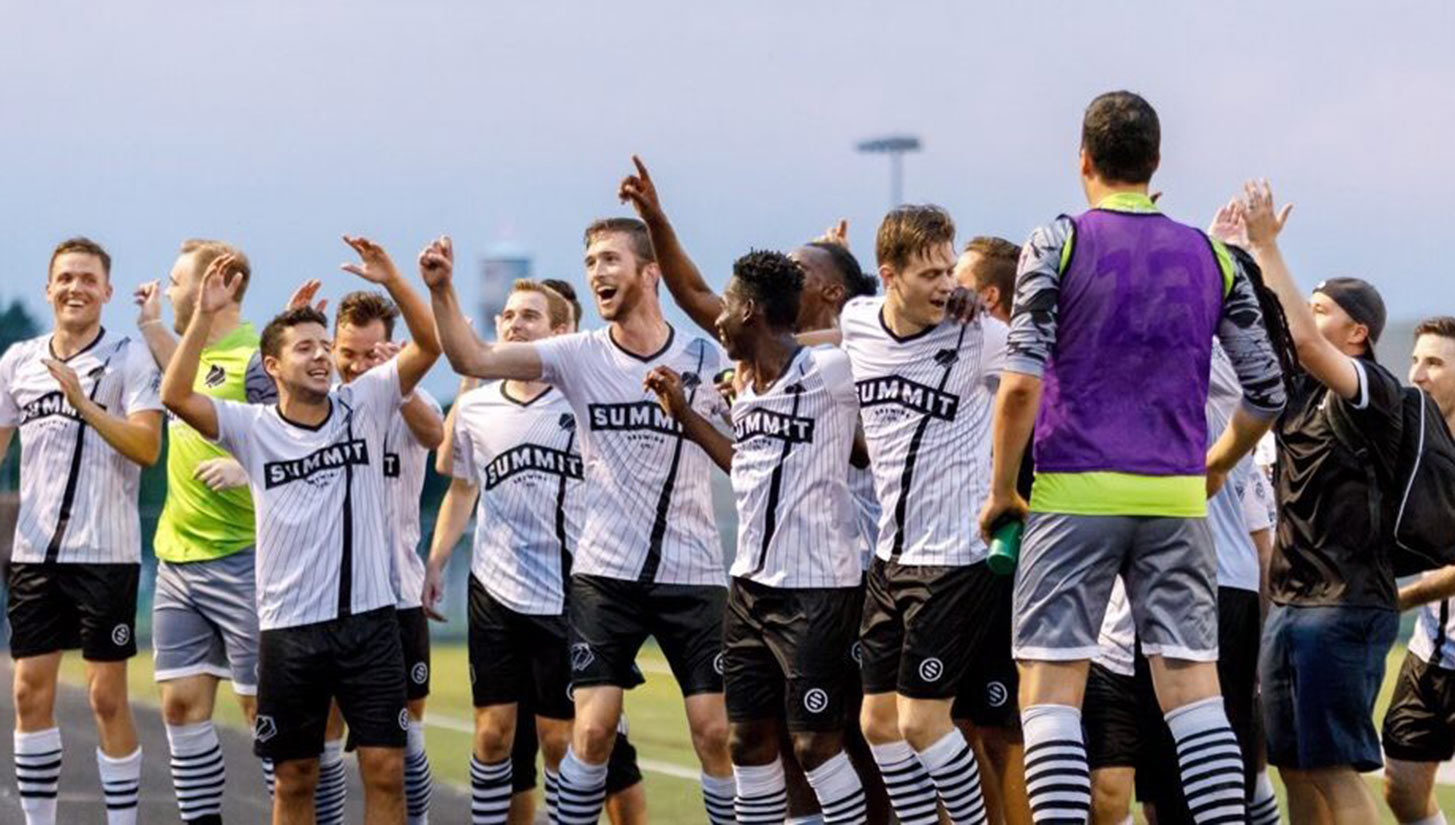MPLS City's Return to the USOC
When the Uncorporate soccer club rolls into town, it brings with it a host of expectations both on and off the field. With a carefully crafted social media strategy, the club has created a fan base around the world. Paired with their innovative approach to merchandise and marketing, those fans can sustain their love and pride of the club by dressing in some of the coolest kits and tshirts in the game. And all that off the field success is being paired with a club stocked with some of the best talent in the country, all from their home state of Minnesota.
Now the Uncorporate machine prepares to take on the largest and longest running domestic soccer competition, the US Open Cup. We sat down with head coach Matt VanBenschoten and club co-founder Dan Hoedeman to discuss the upcoming match and what we can expect when the Crows fly into Chicago.
It would be stupid if I didn’t ask about the last time MPLS City competed in the USOC, can you discuss what happened?
Dan: Back in 2017, we had qualified for the first round from the open qualifiers--first amateur team from Minnesota to do it near as we can tell--but we moved to the NPSL from the now-defunct PLA and USSF disqualified us from the tournament. You can't change leagues while in the tournament, though that only impacts amateur teams. For example, that same year Minnesota United moved from NASL to MLS and stayed in.
The next year, in 2018, we did the qualifier route as well. I was actually coaching the team for the qualifiers. We were drawn away to Sante Fe Wanderers in Kansas City but they had issues with international clearances for their players and forfeited. Then we were drawn away to Aurora Borealis in Chicago. We went there and won 3-2 in extra time. We really bossed the game, but knockouts are knockouts. Extra intense. And it's really hard to play away at this level, but our boys made it happen.
Then we had to travel to Rochester, NY. It was winter, snowing, we played on a park field, had an unheated bathroom as our "locker room" (but it wasn't open until the game started). Really frustrating because we had an indoor facility and an old NASL stadium lined up as options, but such was the draw. We scored in the first minute I think. Their goalie had an astonishingly good game and they had an excellent forward who hit us twice on the break. We had the run of play, but credit to Rochester. They did what they had to do. No surprise, that goalie ended up in USL Championship, he was fantastic. Anyway, win the game and we would have qualified but we missed out on the 2018 first round.
Did you take any lessons from your previous experience?
Dan: Traveling at this level is really, really hard--especially in the qualifiers or in March when you're dealing with proper amateurs with day jobs (and not college kids). Inevitably, some guys have to work or otherwise can't make it. The travel schedule has to account for their day jobs and not just the perfect travel experience. Pregame and all that happens in inexpensive hotels and often the pre-game kickaround is in the hotel parking lot, that's just how it is at that level. We have learned a lot about how to manage logistics, scheduling, players, and pre-game prep.
It's still a tall ask to win away in general and even moreso at this level, but we won't make the same mistakes we made in 2018.
The club has been very successful in the NPSL, so what does success look like in the USOC?
Dan: This tournament is a little bit of a blank slate because of when it starts. We're building our tournament roster right now and it hinges on who is available. Our college guys are out. We also have guys checking their work schedules too and trying to plan for that. Our team is in flux.
Our scouting is in flux, too. Who will Chicago FC United play? It won't be their typical USL2 roster. Will they rely on their (very successful) academy? Chicago is full of elite ballers. Will they pull from them? We're not even sure what team we're playing.
It's hard to know what to expect.
I can tell you that the guys who were there in 2017 when we were kicked out feel like there is unfinished business they have with the tournament. We're keen to get a win and move on. The dream is to face a pro team. Can you imagine us, say, hosting Forward Madison? Or playing Minnesota United at the Allianz? We can. Not saying we expect it! But this tournament is about dreaming a little bit and those are our dreams.
Matt: Success in the Open Cup for us is to make a run into the 2nd or 3rd rounds. It’s incredibly ambitious, but what every person in this club understands is that being part of MPLS City is a sacrifice and a privilege. It’s a bond that few other teams have. When you look around and know that every single person you see next to you is giving something up to be there with you fighting for the same thing, it’s indescribable. We will certainly play teams that are more talented than us, but they won’t have that same passion/dedication that I see on a weekly basis from our players.
Round 1 you’ll be facing a USL2 side in Chicago FC United. Thoughts?
Matt: It’s definitely an intriguing draw. Chicago FC United has a very good reputation throughout the soccer community and if you look at their results the past few years, they are one of the best USL-2 teams. The biggest wildcard for all of these first round matchups is what non-college players will each team be able to field. Since US soccer made the ruling that all current college players can no longer participate in the Open Cup, it will have a drastic impact on how teams form their rosters.
Dan: Top to bottom, Chicago are a great organization in a city full of top players. Again, not sure what their team will look like given the time of year, but facing a top opponent is the point of the tournament. They're a top opponent.
How will you approach the match?
Matt: To be blunt, our approach is to prepare well and go win. There’s a history with MPLS City and the Open Cup. Given who we are and our propensity to ruffle feathers (no pun intended), we have to prove it on the field otherwise no one will take you seriously. It’s arguably the biggest game we’ve had as a club in our small history, therefore we’ll be preparing as such.
Do you feel like you have something to prove in this match?
Street art from last year’s MPLS City-coordinated visit from Dutch street artists, Kamp Seedorf
Dan: At our best, we're this traveling circus that likes to play soccer. We just want to have fun and play good teams. Our attitude is not that we have anything to prove.
That said, Minnesota isn't a big soccer state, this is our first run in the cup proper, we all remember 2017... We're punching up against Chicago. We're used to that, though, to punching above our weight-on-field and off. It's part of the fun.
You'll be playing in an MLS stadium, excited about that experience?
Dan: It's fantastic to play at a stadium of that quality.
We played our 2017 qualifier against Oakland County at the National Sports Center when Minnesota United had just moved out of it but before it had been converted. Playing on an NASL-qualify surface is something the guys all enjoy. And our fans loved being back at the NSC, it was nostalgic. But this is going to be a level up, and it's a dream scenario. We spend a lot of time playing in high school stadiums, so are we excited about playing in an MLS stadium? Hard to express how excited we actually are.
Any thoughts on the change to the USOC schedule by shifting round 1 matchups earlier? How will it affect your roster/potential players?
Matt: In years past this would have had a much bigger impact on us. As we’ve evolved as a club, we’ve had to rely less and less on college players or guys who are out of town. In year 5 we now have a solid core of very talented players who are all local guys. Players like Max Stiegwardt, Shae Bottum, Myles Norville and Justin Oliver (just to name a few) have all spent time in and around MLS/USL teams. So we know we have the pedigree to compete at a very high level.
Overall, what do you think about the USOC? Should it be more important to the average American soccer fan?
Dan: I have had a bumpy relationship with the U.S. Open Cup over the years, but I love it. I wish it was bigger, I think it has March Madness potential. It definitely has potential to encourage the growth of lower division clubs. I actually think that the structural changes made this year are positive. I wish it didn't start quite so early, but that's a Minnesota weather issue, not a college player issue. The calendar time between rounds, the ESPN+ deal, the number of "tier four" teams still in the tournament, and when the pro and MLS teams come into the tournament are all moves I've liked. If nothing else, USSF paying attention to and trying to improve the cup is a big thing. I like that it seems to matter to the Federation.
Personally, I like the lower divisions and the underdog stories. I always watch the early rounds of March Madness but haven't seen the Final Four games in maybe 15 years. Part of that is my alma mater does not threaten to make the Final Four, but the other part is the games matter in a different way earlier and I love that David vs Goliath thing. I can watch a league game whenever I want. This is something different.
MPLS City heads to Chicago to take on Chicago FC United March 24th in their first round US Open Cup match. Follow them on twitter for updates and information.
- Dan Vaughn












